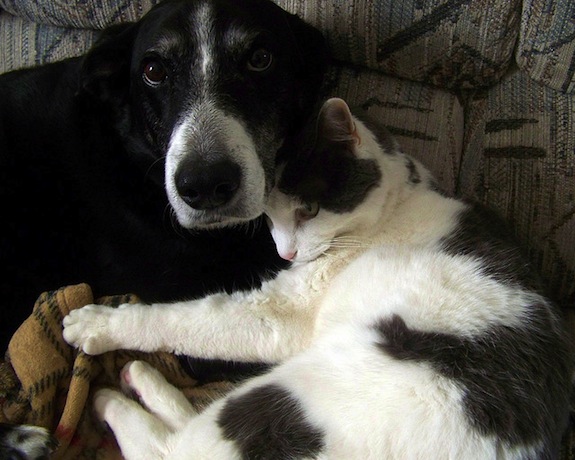One in 10 Adopted Pets is Lost or Returned After Six Months
Of the one in ten adopted pets that were not longer with their adopted parents six months later, about half of them had been returned to the shelter

Image: toastie97
Every year, 5 million to 7 million animals wind up in animal shelters across the United States. About half of those animals will be adopted. For that half, this might sound like a happy ending, but it isn’t always. Six months later, one in 10 of those adopted animals are no longer in their new homes.
A study done by the American Humane Association, in partnership with PetSmart, recently looked at three major cities to try to figure out just what happens to cats and dogs after adoption. They sent surveys out in Charlotte, North Carolina, Denver, Colorado and Fort Worth, Texas. All told, 572 people filled out the survey, and their answers have provided some key information for animal shelters.
Of the one in 10 adopted pets that were not longer with their adopted parents six months later, about half of them had been returned to the shelter. The other half had been lost, died or given away to someone else. And while the survey targeted the six-month period, they found that nearly two-thirds of the animals had been given up within just two months of adoption, and a quarter of them within two weeks.
Companion Animal Psychology says that this fact is extremely useful for animal shelters:
This tells us that any policies or interventions designed to improve retention rates need to be aimed at the very beginning period after adoption. One possibility might be to improve the information that goes home with the pet when it is first adopted, or for the shelter to keep in touch with new adoptees during the first couple of weeks.
It turns out that perhaps animal shelters aren’t doing a great job of communicating with those who take home pets. Part of the survey asked participants who they turn to for advice about their new pet. While most go to friends, family and the vet, those who asked the shelter for advice were less likely to keep their pet than those who went to friends or family.
Overall, the American Humane Association hopes that shelters will take this information and use it to figure out how to keep pets in their adopted homes.
More from Smithsonian.com:
/https://tf-cmsv2-smithsonianmag-media.s3.amazonaws.com/accounts/headshot/Rose-Eveleth-240.jpg)
/https://tf-cmsv2-smithsonianmag-media.s3.amazonaws.com/accounts/headshot/Rose-Eveleth-240.jpg)